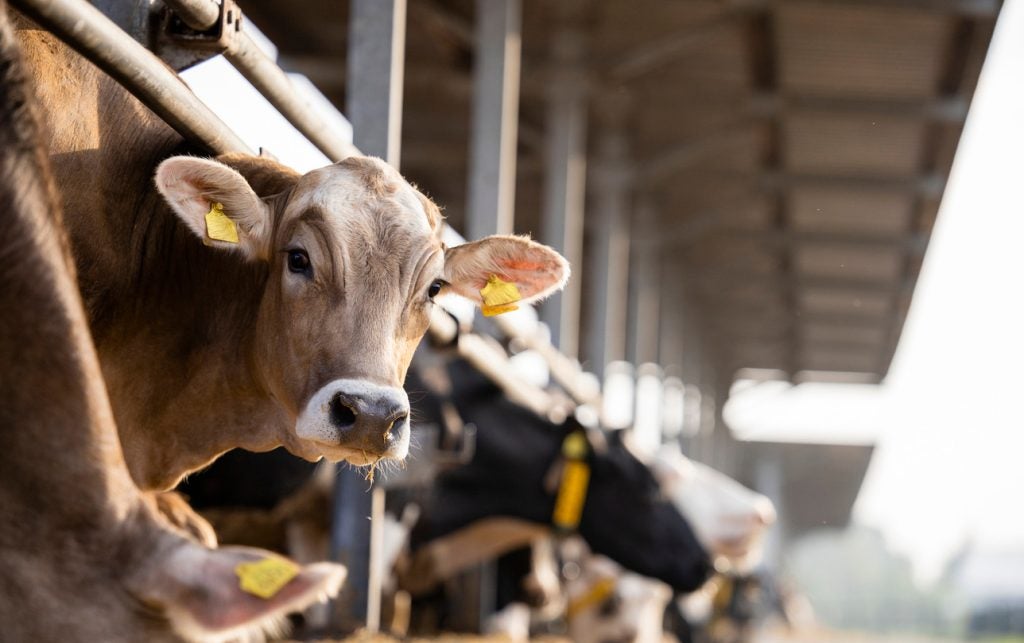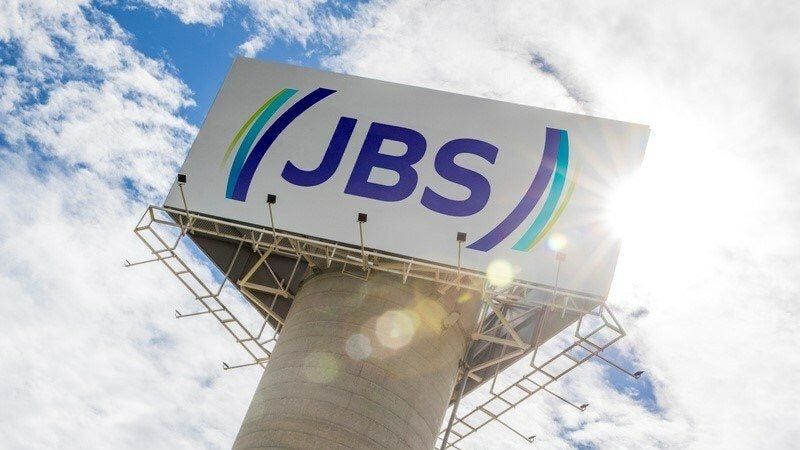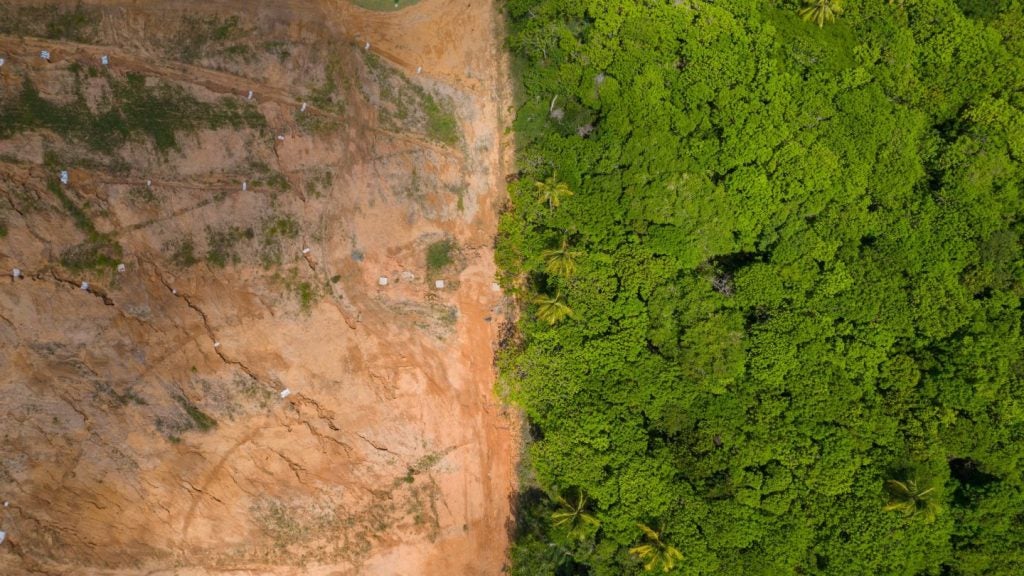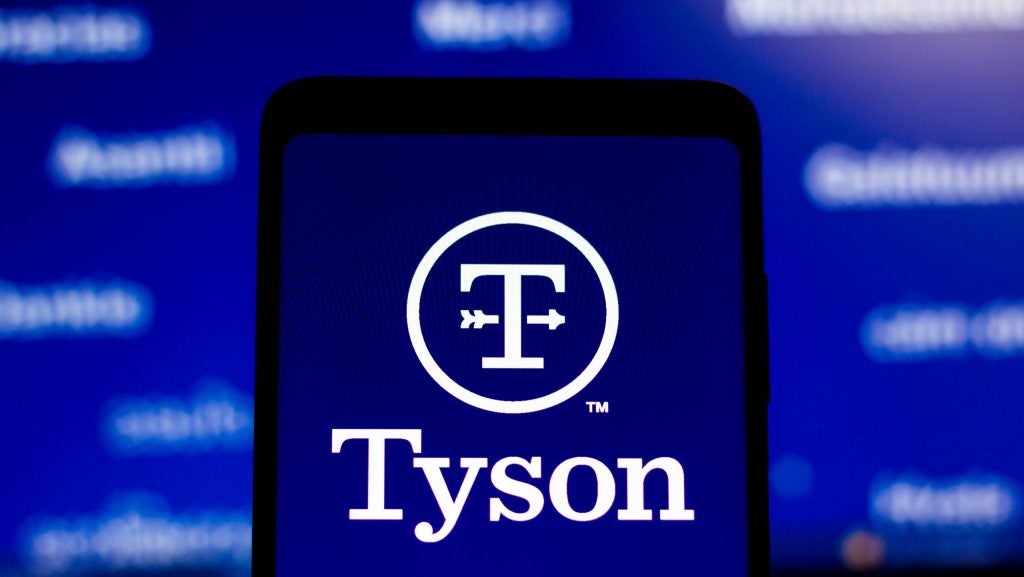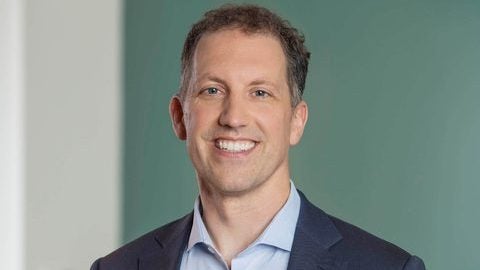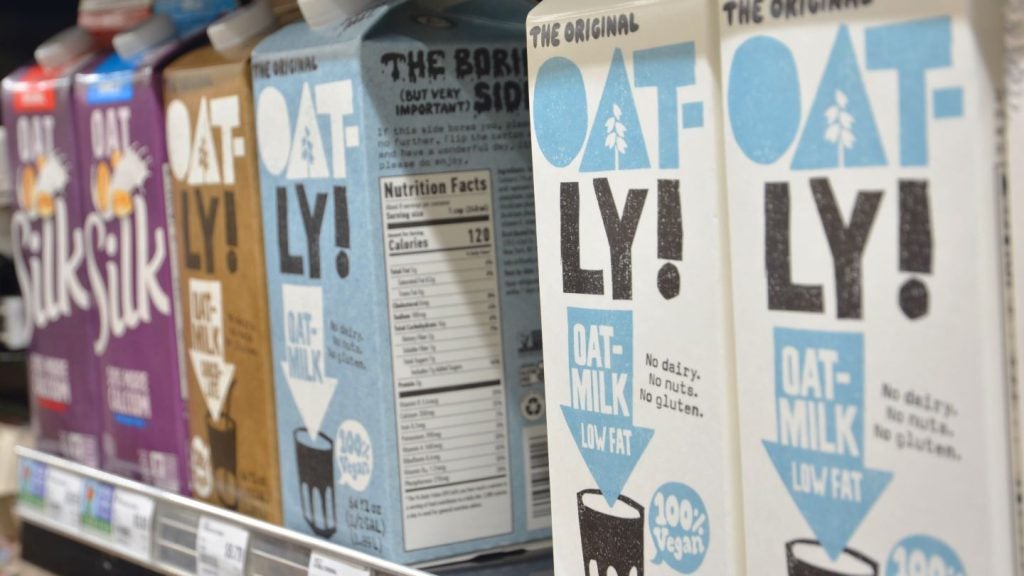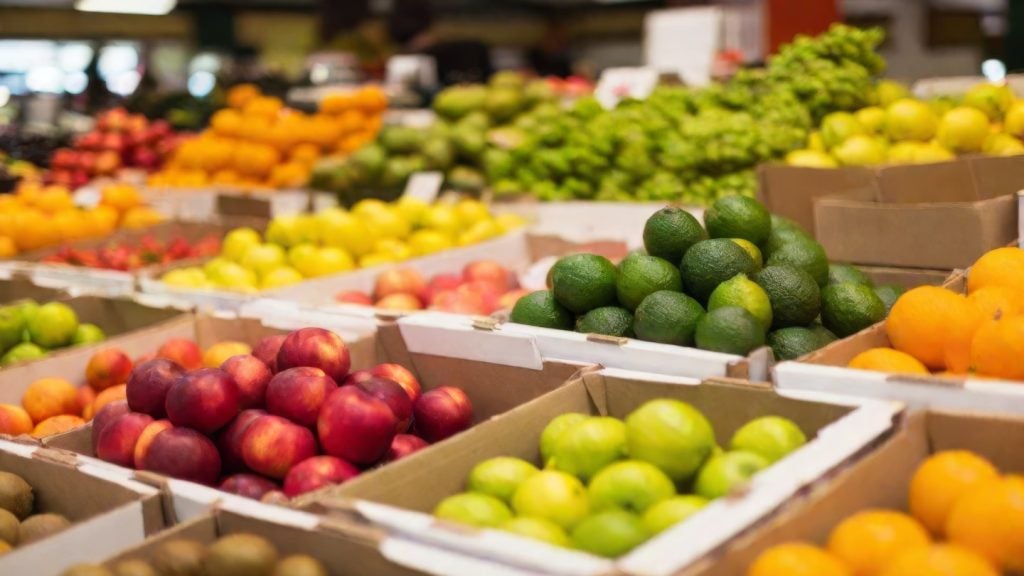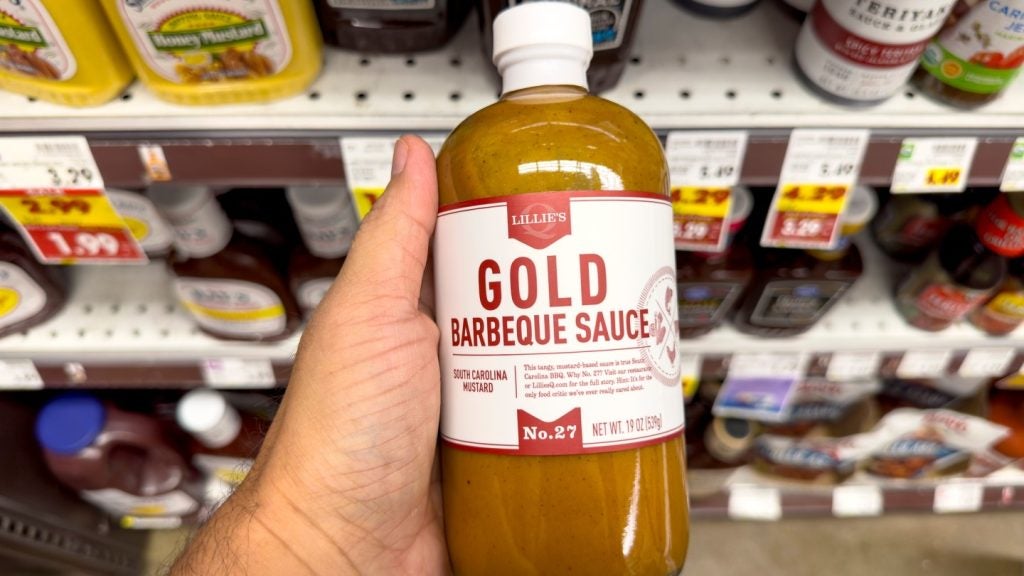Dairy multinational Arla Foods has come under fire following its announcement of plans to trial the use of feed additive Bovaer on its dairy cattle with three major retailers operating in the UK – Tesco, Morrisons and Aldi.
A backlash has emerged across social-media platforms, with some users raising concerns over the additive’s potentially harmful side effects, while others have suggested the supplement is backed by Bill Gates. The uproar has also caused some users to document their boycott of Arla products.
What is Bovaer?
Produced by Dutch animal nutrition and health company DSM-Firmenich, Bovaer is a supplement added to animal feed to reduce levels of methane emitted by cows. According to the company’s website, a quarter of a teaspoon of Bovaer given to one cow per day cuts methane emissions by 30% in dairy cattle and up to 45% in beef cattle.
Over 100 farms in more than 20 countries are using the additive and it is deemed safe for sale in 68 countries, including Australia, Brazil, Chile and Switzerland, as well as in the EU and EEA. It was granted regulatory approval for use in the UK at the beginning of this year.
In May, DSM-Firmenich announced Bovaer had also met the US Food and Drug Administration’s necessary safety and efficacy requirements to be given to dairy cattle. In the initial stages, DSM-Firmenich is to supply its partner US pharmaceutical group Elanco with supplies of Bovaer from Europe. Elanco is also supplying the feed additive to Mexico and Canada.
How does Bovaer work?
Once added to animal feed, DSM-Firmenich claims Bovaer can reduce methane levels by suppressing an enzyme in cow’s rumen that combines hydrogen and carbon oxide to produce enteric emissions (also known as methane).
Around a quarter of a teaspoon can start having an effect “in as little as 30 minutes”, according to the company.
Why is it used?
Food companies have a long list of emissions-related goals they’re looking to achieve across the next couple of decades to cut their carbon footprint. When it comes to addressing emissions, meat and dairy companies are in the spotlight for methane and have been looking at the feed given to cows.
For example, Danone has a pledge to cut methane emissions by 30% by 2030. Last year, the Activia maker invested in the Enteric Fermentation R&D Accelerator to conduct research to limit enteric fermentation, a digestive process in ruminant livestock that releases methane.
Danone conducted a pilot into the use of Bovaer between 2018 and 2020 in Belgium, which the company said produced an 18.3% fall in methane-enteric emissions, a result it described as "promising".
The Activia producer told Just Food the farms engaged in the trial continue to use Bovaer today, following "several successful and comprehensive trials" that demonstrate "Bovaer effectively reduces emissions without affecting milk quality".
Global meat heavyweight JBS signed an agreement to use Bovaer in its animal feed back in 2021 at COP26.
Meanwhile, Australian retailer Coles has also been using the supplement since 2022 when it took part in a trial with DSM-Firmenich, beef supplier Mort and Co. and the University of New England. Three of the group’s beef suppliers used Bovaer as of November 2023.
Meat and dairy companies have faced criticism around their lack of methane reduction action too, which could make the adoption of a solution like Bovaer tempting. Most recently in October, environmental campaign group Greenpeace estimated methane emissions from meat and dairy companies it analysed exceeded those of the world’s biggest corporations in the fossil-fuel sector, and called on big companies to do more.
Why has Bovaer hit the headlines?
Last week, Arla announced a “collective project” with Tesco, Morrisons and Aldi to pilot the use of Bovaer. The project will involve roughly 30 Arla farmers.
There was an adverse reaction on social media, with some users raising concerns over a label for the additive attached in an enforcement of discretion letter sent from the US FDA to pharmaceutical group Elanco in May.
The label featured in the letter includes warnings that the additive is “Not for human use” and that it “may damage male fertility and reproductive organs”, which have been shared across X and TikTok.
Other users have also suggested the additive is backed by Bill Gates.
The posts have included people filming themselves throwing away Arla-branded products in a boycott against the company for its trial of Bovaer.
The retaliation against Arla is not unique to the company and highlights the scepticism among some consumers about the products they buy and the alarmism innovation can generate.
Speaking at the Dairy Innovation Strategies conference in May, led by Just Food’s sister organisation Arena International Events Group, an executive at Norway-based dairy group Tine, spoke about the reaction to its use of Bovaer.
Anne Catherine Whist, Tine's vice president for R&D, said the company had launched Future Milk, which is sourced from cows that are given the Bovaer additive.
“It was all over the newspapers. It was either very positive or people saying you are ruining the purity of Norwegian milk. There were quite diverse responses,” she said.
“Some said it was unnatural and even that it could cause cancer. Some said it was greenwashing.
“But, in a questionnaire, a third of those responding said they gained more knowledge about how Tine works in terms of sustainable Norwegian milk production.”
Industry response
In an interview with UK broadcaster the BBC yesterday (3 December), Bas Padberg, the MD of Arla Foods' UK arm, sought to calm concerns, explaining that Bovaer “is not new, it’s completely safe and very importantly, it doesn’t get into the milk”.
Padberg said he understood consumers’ worries but stressed: “Arla Foods would never ever jeopardise the quality of our product. We only work with completely with science-checked and backed up product for our foods.”
DSM-Firmenich was also keen to put the record straight on the safety of its product. In a statement to Just Food, a company spokesperson echoed Padberg’s comments around safety and the supplement’s inability to transfer into milk, describing the information being spread online as “fake news”.
We are scientists, we deal in facts and we would never market a product that was not safe
A DSM-Firmenich spokesperson
They added: “We are scientists, we deal in facts and we would never market a product that was not safe. We are grateful for independent, third-party experts, farmers and farmers’ organisations who have come out to counter this misinformation.”
In the UK, national trade body Dairy UK said it was “understandable that people may have questions about these new innovations in feed and how they might impact cow and human health” but stressed Bovaer had been approved by the European Food Safety Authority (EFSA), the UK's Food Standards Agency and Food Safety Scotland.
Nevertheless, the social media uproar has also prompted some smaller dairy businesses to make it clear to consumers that their dairy products are made without Bovaer.
In a LinkedIn post last week, Lancashire Farm Dairies said it wanted “to assure” people “that Bovaer is not used as a feed additive in any of the cow’s milk supplied to our dairy”. It added that the group had “no plans to incorporate this additive in the future”.
Organic Herd, another UK dairy, also shared a statement on the social media platform “to reassure” consumers that Bovaer was not used in its products, given the supplement “is not approved for use in organic farming”.
“Choosing organic is about more than taste; it’s about transparency, sustainability, and trust," it added.
Reaction outside the UK
While the focus of the backlash appears to be centred on UK shores, the affair has sparked some questions about Canada’s approval of Bovaer.
In a post on X yesterday, Dr Sylbain Charlebois, professor in food distribution and safety at Dalhousie University, said Canada's approval of the supplement shows its willingness to reduce greenhouse gases but reflected how the move “risks repeating a pattern where well-intentioned innovations trigger backlash due to a lack of openness”.
Giving Bovaer the green light with a lack of “robust public discourse was a missed opportunity”, Charlebois added, noting the importance of transparency for consumers as they become more selective and inquisitive about what they consume.
“Transparency must take centre stage, ensuring that the industry evolves without losing the trust of the people it serves."
Charlebois also called on the Canadian Food Inspection Agency (CFIA) to not only carry out safety checks but “evaluate the broader implications of innovations like Bovaer on food quality, consumer trust, and market dynamics”.


